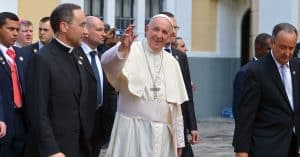Pelosi and Other Dignitaries to Miss Inaugural Events
Former House Speaker Nancy Pelosi will not attend President-elect Donald Trump's inauguration next week. The decision, reportedly influenced by her recovery from hip replacement surgery, follows her attendance at Trump's first inauguration in 2017.
Pelosi, a vocal critic of Trump, joins several Democratic House members who will also forego the upcoming festivities.
Pelosi, known for her opposition to Trump throughout his presidency, confirmed her decision through a spokesperson. The spokesperson highlighted that she is recuperating from hip surgery after a fall in Luxembourg. Despite using a walker, Pelosi managed to attend the certification of the 2024 election results on January 6. This demonstrates her commitment to certain ceremonial duties but indicates her need to prioritize recuperation in this instance.
Details of Trump's Inaugural Events
Traditionally, presidential inaugurations are multi-faceted events. They include the swearing-in ceremony itself and subsequent activities, such as the historical inauguration luncheon. An integral part of inaugural traditions since President McKinley, the luncheon is hosted by the Joint Congressional Committee on Inaugural Ceremonies.
Although former Presidents Bill Clinton, George W. Bush, and Barack Obama will partake in the swearing-in ceremony on January 20, they have opted out of the luncheon. Hillary Clinton, who often accompanies her husband, will also decline the luncheon.
The decision by Pelosi and others to skip parts of the inauguration highlights continuing divisions. The political climate remains charged, particularly for those who have had tumultuous interactions with Trump.
Contrasts with Past Inaugurations
The political theater between Pelosi and Trump has been marked by notable incidents. Her adamant opposition to Trump is well-documented, from her symbolic tearing of his State of the Union address in 2020 to her leadership in his impeachment proceedings. Pelosi's declaration that her ambition was to prevent Trump's return to the White House underscores the depth of their discord.
Moreover, Trump's absence from President Biden's inauguration in January 2021 continues to add to the strained relations. The tit-for-tat nature of these decisions underscores the lingering divisions even as the nation's political landscape evolves.
Responses from Other Political Figures
Several House Democrats alongside Pelosi, including Alexandria Ocasio-Cortez, have chosen to withdraw from attending the inauguration. This reflects a broader sentiment within certain factions of the Democratic Party. The choice represents a collective statement of dissent.
Conversely, Michelle Obama, former first lady and a prominent figure, will miss the swearing-in ceremony despite her husband’s planned attendance. This mix of participation and absence from high-profile figures underscores the complexity of current political allegiances.
In a public statement, Trump responded to Pelosi’s decision, labeling her with critical terms. His continued denunciation of Pelosi reflects the enduring animosity between them, as well as the polarized atmosphere.
Implications of Attendance Choices
Given these choices, the political symbolism of attendance at such events becomes crucial. Participation is often seen as a validation of the incoming administration. As such, absence can signify disapproval or dissent, further emphasized by historical gestures and words exchanged between key political figures.
Pelosi's history with Trump, characterized by significant events and personal remarks, stresses the personal and political dimensions of her decision. Her recovery from surgery offers a practical rationale but also aligns with her existing political stance.
Among Americans, these high-profile decisions may impact perceptions of national unity during transitions of power. Pelosi's absence, paired with others', highlights the enduring partisan tensions within the realm of American politics.
With the inauguration soon approaching, these dynamics unfold against the backdrop of historical precedents and modern political realities. The participation or absence of political icons will inevitably contribute to how President-elect Donald Trump's inauguration is perceived on a national and international stage.




